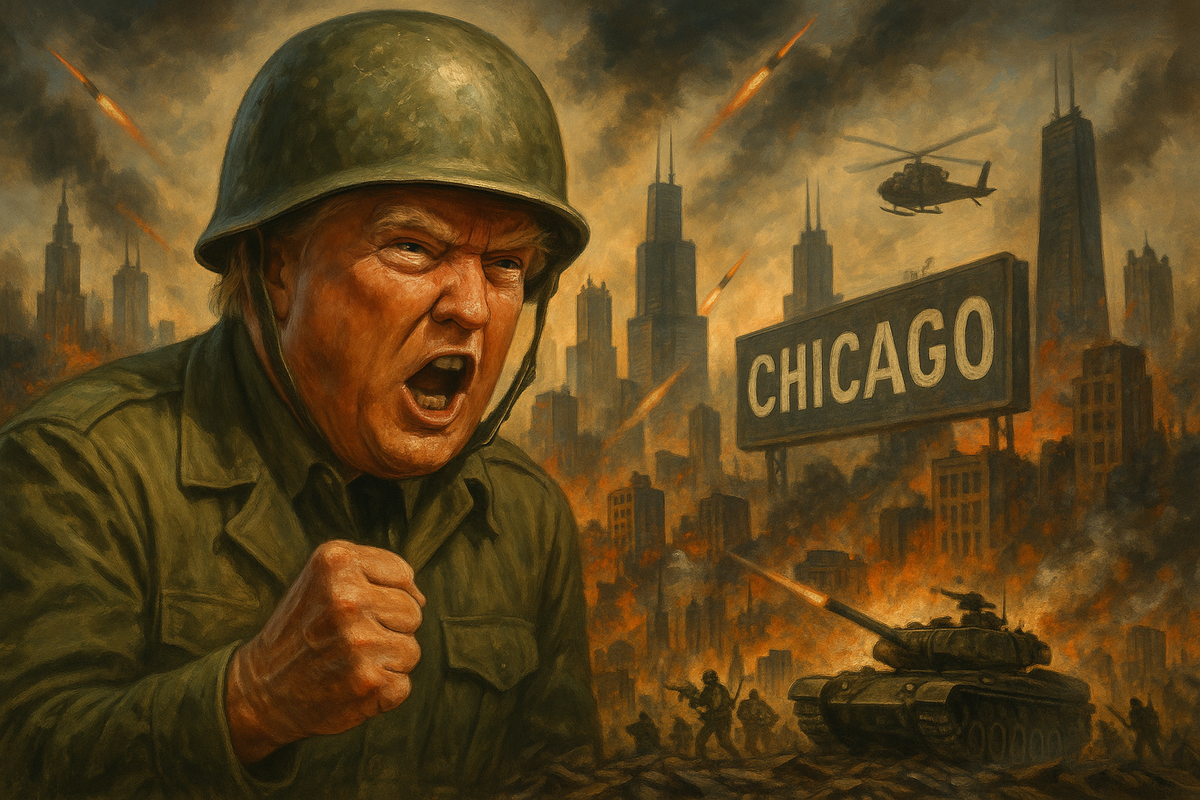Law, Order, and Federal Power: Trump Eyes Chicago in a New National Strategy
What happens in Chicago won’t stay in Chicago. It will shape how America defines the balance between local control and federal power—for years to come.- Rafael Benavente

Trump’s Chicago Gamble: Crime Crackdown or Federal Overreach?
President Trump has once again placed Chicago in the national spotlight, vowing to bring a federal “crime crackdown” to the city. He frames it as a push to “make cities very, very safe.” Critics see something different: a dangerous expansion of executive power that risks undermining local democracy.
Why Chicago?
For decades, Chicago has been a political punching bag—used as shorthand for urban violence. But the reality is more nuanced. Violent crime has been declining in recent years. Mayor Brandon Johnson points to these improvements as evidence that community-led reforms are working. “There are many things the federal government could do,” he said, “but sending in the military is not one of them.”
Still, Chicago carries symbolic weight. Targeting it allows Trump to tap into a national narrative of “Democratic cities in chaos,” even if the statistics tell a different story.
Local Resistance
Illinois Governor J.B. Pritzker and Mayor Johnson have rejected the idea outright. They argue it would erode trust in law enforcement and set a dangerous precedent for federal intervention in local affairs. The pushback highlights a broader clash: who controls America’s cities—the people who live there, or Washington?
The Legal Question
Trump’s idea isn’t just controversial—it’s legally murky. The Posse Comitatus Act restricts military involvement in civilian law enforcement. Only under extraordinary circumstances, such as insurrection, can a president bypass state authority. Even then, courts could challenge the move. If Trump proceeds, Illinois is almost certain to sue, setting up a historic test of presidential power.
Politics in the Background
Beyond law and order, politics loom large. This move plays well with Trump’s base, echoing Richard Nixon’s “law and order” message of the late 1960s. By targeting Democratic strongholds, Trump reinforces his campaign narrative: liberal leaders are failing, and only federal power can restore safety.
But framing crime as a partisan issue risks deepening divides. It ignores the progress being made on the ground and paints entire cities with a broad brush for political gain.
The Risks of Militarization
Bringing federal troops into neighborhoods could erode fragile trust between residents and local police. Communities already skeptical of law enforcement may see a military presence not as protection, but as occupation. Civil liberties advocates warn that normalizing military involvement in civilian life could have lasting consequences—blurring the line between policing and warfare.
A Test Case for America
Chicago may be just the beginning. Trump has hinted that New York could be next. If federal deployments move forward, other cities could follow. That makes Chicago a test case for the future of American governance.
The deeper issue is this: how much power should Washington have over America’s cities? If presidents can send troops into municipalities without local consent, the very foundation of federalism begins to crack.
Conclusion
Trump’s promise to bring a federal crime crackdown to Chicago is about more than crime statistics. It is a test of law, politics, and democracy itself. Supporters see a strong hand restoring order. Opponents see federal overreach that threatens civil liberties.
What happens in Chicago won’t stay in Chicago. It will shape how America defines the balance between local control and federal power—for years to come.
By Rafael Benavente
for another related blog by Rafael Benavente, Chicago-Trump
